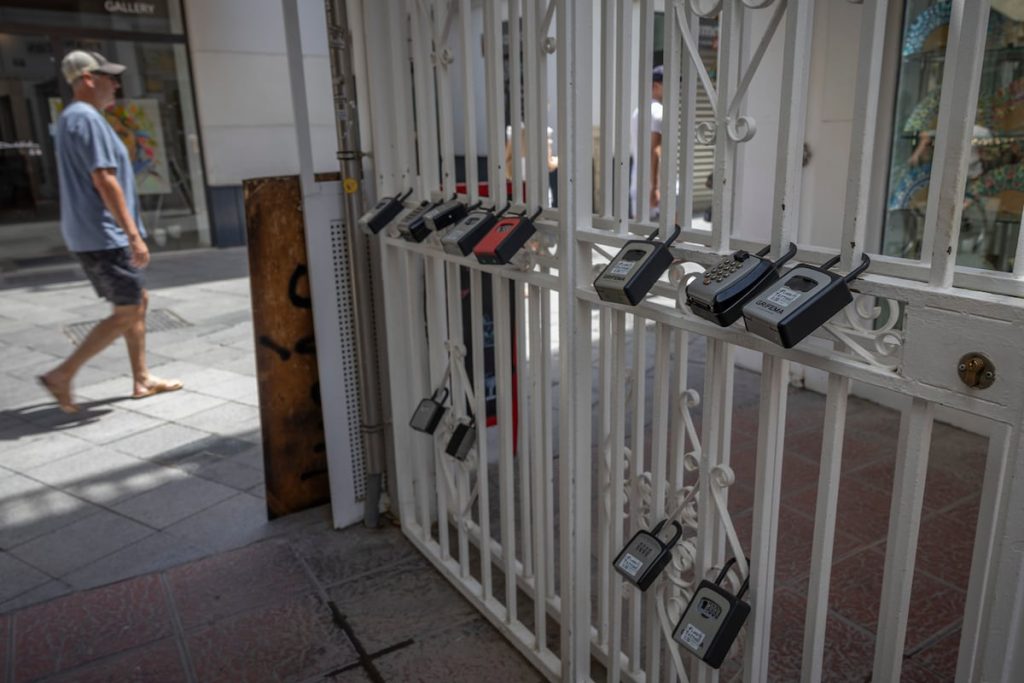The City Council of Seville (PP) will cut off water to around 5,000 irregular tourist apartments operating in the Andalusian capital without a license or that do not comply with regulations, according to municipal estimates. The Council aims to halt the proliferation of vacation apartments operating outside the law and plans to close the estimated 5,000 properties after cross-referencing data with rental platforms. However, the opposition criticizes the measure as mere fireworks because the Council rejected two months ago to halt new tourist rental licenses in Seville and the gentrification affecting the city center will continue to rise. The Council plans to review these 5,000 irregular properties at a rate of 10 per week, meaning that without more inspectors, the task will be endless and take a decade to complete.
Andalusia has the highest number of tourist rentals in Europe, with 117,000 properties and 620,000 beds. Complaints from residents about the problems caused by mass tourism have increased this record-breaking year for visitors, and politicians are now taking action. As part of a ten-point plan with the regional government to regulate legal tourist apartments, the Council highlights water and electricity cut-offs, although cutting off electricity is more complex due to the liberalized nature of the electricity contract. The Mayor of Seville, José Luis Sanz, praised the plan on Monday, emphasizing a zero-tolerance approach to irregular tourist apartments operating outside the law.
The Council’s priority is to address the issues caused by vacation apartments for residents in the city center and the Triana neighborhood, both heavily impacted by gentrification in recent years leading to significant coexistence problems. However, the local platform advocating against mass tourism, Iniciativa Ciudadana Sevilla, sees the Council’s actions as a distraction. The platform questions how long it will take to eradicate illegal properties with inspections limited to 10 per week and calls for a moratorium on new licenses to address the core issue. The opposition parties previously rejected the Council’s proposal in June to limit tourist rentals to 10% of total available properties, as it did not address neighborhood associations’ concerns and failed to impose a moratorium, only regulating properties in the central areas where problems are more prominent.
The legality of cutting off water to legally contracted tourist apartments with paid-up bills is questioned by the local PSOE party. They question the effectiveness of limiting tourist rentals to 10% of total properties in Seville, suggesting that allowing up to 33,000 properties would not effectively restrict their growth in the city. The PSOE also criticizes the current Mayor for allowing a surge in tourism during his predecessor’s eight-year term, encouraging gentrification. The Council defends the water cutoff measure as legal and expects it to act as a deterrent for the 5,000 illegal properties, leading to a quick decline in their numbers once inspections begin. The Council also refutes the call for a 2.5% limit on tourist rentals, citing legal frameworks and market freedom.
The tourism sector supports the review of illegal properties but also calls for inspections of hotels allegedly operating as tourist apartments. They advocate for a municipal registry to identify and regulate clandestine offerings, aiming to clarify gray areas in the market. The Association of Professionals of Tourist Apartments in Andalusia (AVVA) encourages the Council to extend inspections to hotels operating illegally as tourist apartments and those misrepresenting their category. They are currently in talks with the Council to establish a municipal registry for better oversight of the sector.


